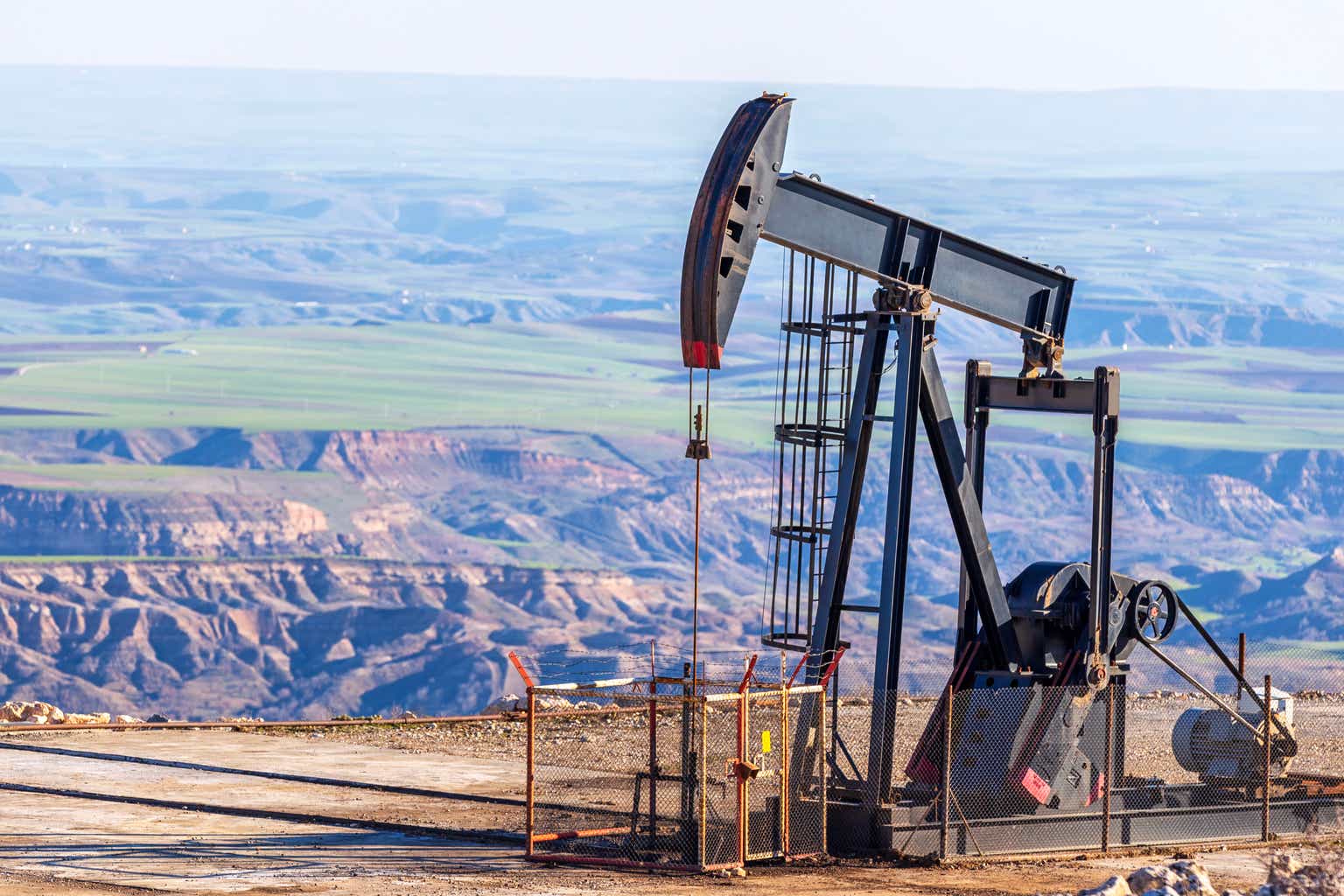This article/post contains references to products or services from one or more of our advertisers or partners. We may receive compensation when you click on links to those products or services
History shows us that even during a down economy, certain sectors of the stock market will continue to thrive. Or, at the very least, continue chugging along – as certain stocks within become undervalued.
Pharmaceuticals, consumer staples, and utilities have proven themselves pretty recession–proof ever since Clark Gable was still auditioning for roles. And now, speculators are wondering if infrastructure stocks are about to join the pantheon. After all, these construction-related stocks are rising in defiance of a bearish market – and Uncle Sam hasn’t even showed up with his $1.2 trillion infrastructure shopping list yet.
But which infrastructure stocks stand to benefit the most from the new infrastructure bill? Which company looks overvalued to the point of spooking investors, but isn’t? And which vital infrastructure company supplies something builders call “unappealing” and “not glamorous” – yet is poised to see record profits?
Let’s investigate the 5 best infrastructure stocks to buy.
Overview of the 5 Best Infrastructure Stocks
| Infrastructure companies | Ticker | TL;DR (Too Long; Didn’t Read) |
|---|---|---|
| Caterpillar | CAT | Global vendor of construction and mining equipment expected to see demand skyrocket and revenue double by 2026. |
| ChargePoint Holdings | CHPT | Successful EV charging company with 174,000 chargers in 14 countries poised to help President Joe Biden meet his goal of a half million chargers in the U.S. |
| Nucor | NUE | America’s largest steelmaker ready to meet demand from homebuilders, automakers, et al as “Made in America” policies go into effect. |
| Deere | DE | Legendary purveyor of farming/forestry equipment (and mesh green hats) is widening its lead over competitors with 40% YOY sales and heavy R&D spending. |
| Vulcan Materials | VMC | America’s largest supplier of sand, gravel, and crushed stone – essentials for virtually every worksite – poised to see record demand as infrastructure spending spools up. |
Caterpillar
- Current Price: $235.70
- 12-Month High: $239.85
- 12-Month Low: $160.60
- 1-Year Target: $224.59
- Market Capitalization: $122.66B
Humans will never stop building things or digging holes, and when they do, they call Caterpillar. The company’s mustard-colored construction equipment can be seen everywhere, from the site of a new skyscraper to the deepest depths of a quarry. For that reason, it doesn’t take a quant fund to see how the U.S.-based heavy machinery titan will benefit from the $1.2 trillion infrastructure bill.
That said, veterans of the last Recession might remember how Caterpillar was among the first casualties. Shares of CAT stock took a 40% nosedive in late ‘08 due to a grim outlook on new construction projects. The same thing happened again at the outset of the COVID-19 pandemic, and again in Q3 2021 amid fears that Evergrande – China’s largest real estate firm – was on the verge of default (fears which were later realized).
So where does that leave Caterpillar now?
Well, shares of CAT have a habit of always rebounding within six to 12 months. I mean, just look at this chart and tell me it doesn’t look like the EKG of someone chugging a Red Bull:
Caterpillar’s cyclical nature seems to vindicate long-term holders who realize that humanity will never stop digging holes. And with the $1.2 trillion infrastructure bill signed, a rising number of contracts from emerging markets, and global mining making a rebound (check out our 5 Best Mining Stocks) – analysts see Caterpillar’s revenue doubling by 2026.
ChargePoint Holdings
Current Price: $11.99
- 12-Month High: $26.75
- 12-Month Low: $8.50
- 1-Year Target: $22.48
- Market Capitalization: $4.08B
The big infrastructure bill calls for a whopping 454,000 new charging stations to be installed nationwide. For context, there are currently just 53,000 charging stations in the United States. And the target number of 454,000 is more than triple the number of gas stations we have.
But lofty government promises like this always beg a simple question: which private sector company is going to do the dirty work?
Many are looking at ChargePoint, a California-based outfit that’s proven extremely successful at its narrow, focused mission: selling and installing Level 2 chargers. Unlike most of its competitors, ChargePoint doesn’t bog itself down in too much R&D, an overly complex revenue model, or a vanity supercar project. The company keeps it simple, installing Level 2 chargers all day like Krispy Kreme sells hot donuts.
As a result of their refreshingly simple business model, ChargePoint has been able to grow like kudzu, installing 174,000 stations in 14 countries and securing strategic partnerships with Starbucks, Volvo, Goldman Sachs. Furthermore, the company’s consistent 60% to 100% annual revenue growth shows it steamrolling towards a positive EBITDA by 2024.
That’s a mighty impressive feat for a tech company in this climate, and helps to explain why most speculators call it a “strong buy” while share prices cost less than a Chili’s lunch combo. You can read more about ChargePoint Holdings in my analysis of The 5 Best Charging Station Stocks to Watch.
Nucor
- Current Price: $149.19
- 12-Month High: $187.90
- 12-Month Low: $88.50
- 1-Year Target: $125.66
- Market Capitalization: $38.27B
Another key aspect of the big infrastructure bill – and the Biden administration as a whole – is an emphasis on buying American. A steady stream of “Made in America” policies has got investors in foreign lithium and steel understandably nervous.
But there are two sides to that coin, and investors in domestic raw materials have reason to be optimistic. And such optimism has led to especially bullish sentiment on Nucor.
NC-based Nucor is both the largest domestic steelmaker in the United States and our biggest recycler of scrap. The company produced and sold nearly 20 million tons in the first nine months of 2022, representing a roughly 10% increase over its total output for all of 2019.
Oh, and if you’re worried that an investment in steel might go against your ESG principles, you should know that Nucor just became the first major industrial company to join the United Nations 24/7 Carbon-Free Energy Global Compact.
In terms of stock performance, share values recently took a ding after a slightly disappointing Q3 earnings call. But considering how demand for domestic steel is poised to skyrocket – from both builders and automakers – it’s hard to see anything but a bright future for Nucor investors – making this one of the top infrastructure stocks to watch this year.
Deere
- Current Price: $441.47
- 12-Month High: $448.40
- 12-Month Low: $283.81
- 1-Year Target: $433.83
- Market Capitalization: $133.24B
Caterpillar Inc. isn’t the only U.S.-based heavy machinery titan poised to benefit from renewed infrastructure spending. Deere, America’s favorite tractor maker and proprietor of mesh green hats, is fully expected to see a big spike in sales, as well.
In fact, Deere has actually been blowing sales expectations out of the water since well before H.R.3684 made it through Congress. Among other factors, rising pandemic-era crop prices enabled farmers to invest in better equipment, leading to a $2.751 billion net profit in 2020. And once the company was able to clear up supply chain headaches and actually meet demand, profits for fiscal year 2022 (ending June, 2022) rose to $7.131 billion.
In total, Deere moved more product than its next two competitors combined. And Deere’s healthy pandemic-era “harvest,” if you will, enabled the company to invest heavily in AgTech (agricultural technology). By infusing AI into both its product lineup and its sales process, Deere is further widening its lead over the competition with cutting edge equipment at impossible prices.
All of this led to Deere becoming a pandemic-era investor darling, with share prices tripling from their pre-COVID peak. And despite record growth, speculators don’t see the stock as overvalued; Deere is facing more tailwinds than headwinds as infrastructure spending rises. Everyone’s going to need farming, forestry, and construction equipment, and Deere supplies all three. Not only that; it has the first of those three markets cornered.
Vulcan Materials
- Current Price: $183.34
- 12-Month High: $213.65
- 12-Month Low: $137.54
- 1-Year Target: $196.93
- Market Capitalization: $24.37B
Without an iconic mesh green hat or iconic yellow equipment to spread brand awareness, Vulcan might need a little explaining. After all, the company doesn’t sell the tractors and backhoes of boyhood dreams, but rather, something the Association of Equipment Manufacturers calls “not appealing” and “not glamorous.”
That something is construction “aggregates” – a class of essential construction materials that includes sand, gravel, and crushed stone. Boring but important, construction aggregates have provided the literal foundation for construction sites tracing all the way back to the Roman Empire.
Today, Vulcan Materials Company (aka VMC) is America’s largest producer of construction aggregates, serving 20 states plus D.C. and parts of Mexico. And despite a product lineup that hasn’t changed in over 2,000 years, the company is seeing a spike in demand from both private and government buyers as supply chain woes clear up and nationwide construction resumes.
Mind you, this is all before the major infrastructure projects begin. Once they do – and more and more companies are coerced by Uncle Sam to buy American – demand for Vulcan’s sand, gravel, and crushed up rock will surely rise.
In essence, while VMC”s products may be boring, their potential profits are anything but. It’s a fact not lost on the 39 hedge funds currently invested in the company as of Q3 2022 (it was 34 in the previous quarter).
Other Ways to Invest in Infrastructure Stocks
Even in a booming sector, picking out a single, winning company can be a big risk. So what other ways can you invest in infrastructure while hedging your risk?
The iShares US Infrastructure ETF
The iShares US Infrastructure ETF tracks the NYSE® FactSet U.S. Infrastructure Index, which itself is made up of equities that either have infrastructure exposure or would directly benefit from an increase in domestic infrastructure activities.
In other words, it’s a pretty straightforward, no-nonsense infrastructure ETF that includes Nucor, Vulcan, and 157 other holdings that all stand to benefit from the approaching tidal wave of infrastructure spending. And despite appearing perhaps too diverse to experience any exciting growth, shares of IFRA have risen 40% from their pre pandemic levels.
Should You Invest in the Best Infrastructure Stocks?
No investment in the stock market is totally risk-free – so what are the pros and cons to consider before purchasing some infrastructure stocks?
Pros
- Low volatility – Broadly speaking, infrastructure stocks are known for their relatively low volatility compared to other major sectors due to long-term steady cash flow and simple, if-it-ain’t-broke business models.
- Old and cash rich – With the exception of relative newcomer ChargePoint, infrastructure companies tend to be more like institutions than companies, with a century-plus of operating experience and 10-figure cash reserves.
- Infrastructure projects haven’t even begun – These companies are already experiencing record sales growth a full year before $1.2 trillion in government spending is slated to begin in late 2023.
Cons
- Regulatory hurdles can snarl share prices – While the White House’s “Made in America” policies may generate sales, the EPA remains vigilant and can (justifiably) slow expansion efforts – especially within mining and forestry.
- Geopolitics create unknowns – China’s real estate bubble, the ongoing war in Ukraine, and countless other global trends tend to impact infrastructure share prices and can lead to short-term rockiness.
- Demand can be a double-edged sword – 40% year-over-year sales growth can still lead to slumping share prices if investors were expecting 60%. Keep an eye on which CEOs might be overpromising on performance going into 2023.
The Bottom Line on the Best Infrastructure Stocks
In a time of high inflation and a sour outlook, infrastructure stocks might provide the risk-adjusted boost your portfolio needs. The infrastructure companies on this list present a strong case for sustained growth, and as a cherry on top, an investment in them could be subjectively seen as an ESG investment in America’s future.
For more growth stocks in exciting sectors, check out my list of the 5 AgTech Startups That Are “Making Hay”.
















